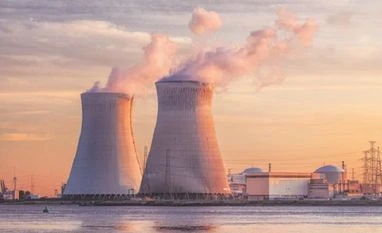US rejects plea to release radioactive water from nuclear plan into sea
There are alternatives to discharging the water into the bay, including evaporation and trucking it off site for treatment and eventual discharge
)
Listen to This Article
Massachusetts environmental regulators have denied a request by the company dismantling a shuttered nuclear power plant to release more than 1 million gallons (3.8 million litres) of radioactive wastewater into Cape Cod Bay.
The state Department of Environmental Protection's draft decision issued Monday said it denied Holtec's request for a permit modification because the discharge from Pilgrim Nuclear Power Station in Plymouth would violate a state law that designates the bay as an ocean sanctuary.
The draft will not be finalised until after a public comment period that ends Aug. 25.
Environmentalists and politicians praised the decision.
Release of the treated wastewater would pose a threat to the bay's environment, human health, the fishing and shellfishing industries, and the economy of the region, Andrew Gottlieb, executive director of the Association to Preserve Cape Cod, said in a statement.
Also Read
Holtec sought to profit at the expense of the people, the environment and economy of Cape Cod and, like most corporate bullies, needed to be told no," he said.
Holtec promised a transparent decommissioning process when it took over the plant after it stopped generating power in May 2019, US Sen. Edward Markey said.
In the years since, Holtec has fallen woefully short on this commitment particularly with regard to its plans to discharge one million gallons of radioactive water into Cape Cod Bay, despite vehement opposition from local stakeholders," he said.
In seeking its permit modification, Holtec said Pilgrim had discharged water into the bay for 50 years while the plant was generating electricity for the region and that environmental studies conducted by the plant operators and Holtec have shown that releasing the wastewater would have little or no environmental impact.
We are disappointed by the state's denial of our permit modification for discharge of treated water from Pilgrim Station that is well within established, safe limits," Holtec said in a statement.
The company is also awaiting a pending decision on the issue from the US Environmental Protection Agency.
This process has already delayed the completion of the project for an additional four years, impacted the workforce on site and further changes when the site can be returned to be an economic driver for the Plymouth community, the statement said.
Pilgrim was a boiling water reactor. Water constantly circulated through the reactor vessel and nuclear fuel, converting it to steam to spin the turbine. The water was cooled and recirculated, picking up radioactive contamination.
There are alternatives to discharging the water into the bay, including evaporation and trucking it off site for treatment and eventual discharge.
(Only the headline and picture of this report may have been reworked by the Business Standard staff; the rest of the content is auto-generated from a syndicated feed.)
More From This Section
Don't miss the most important news and views of the day. Get them on our Telegram channel
First Published: Jul 26 2023 | 7:57 AM IST


